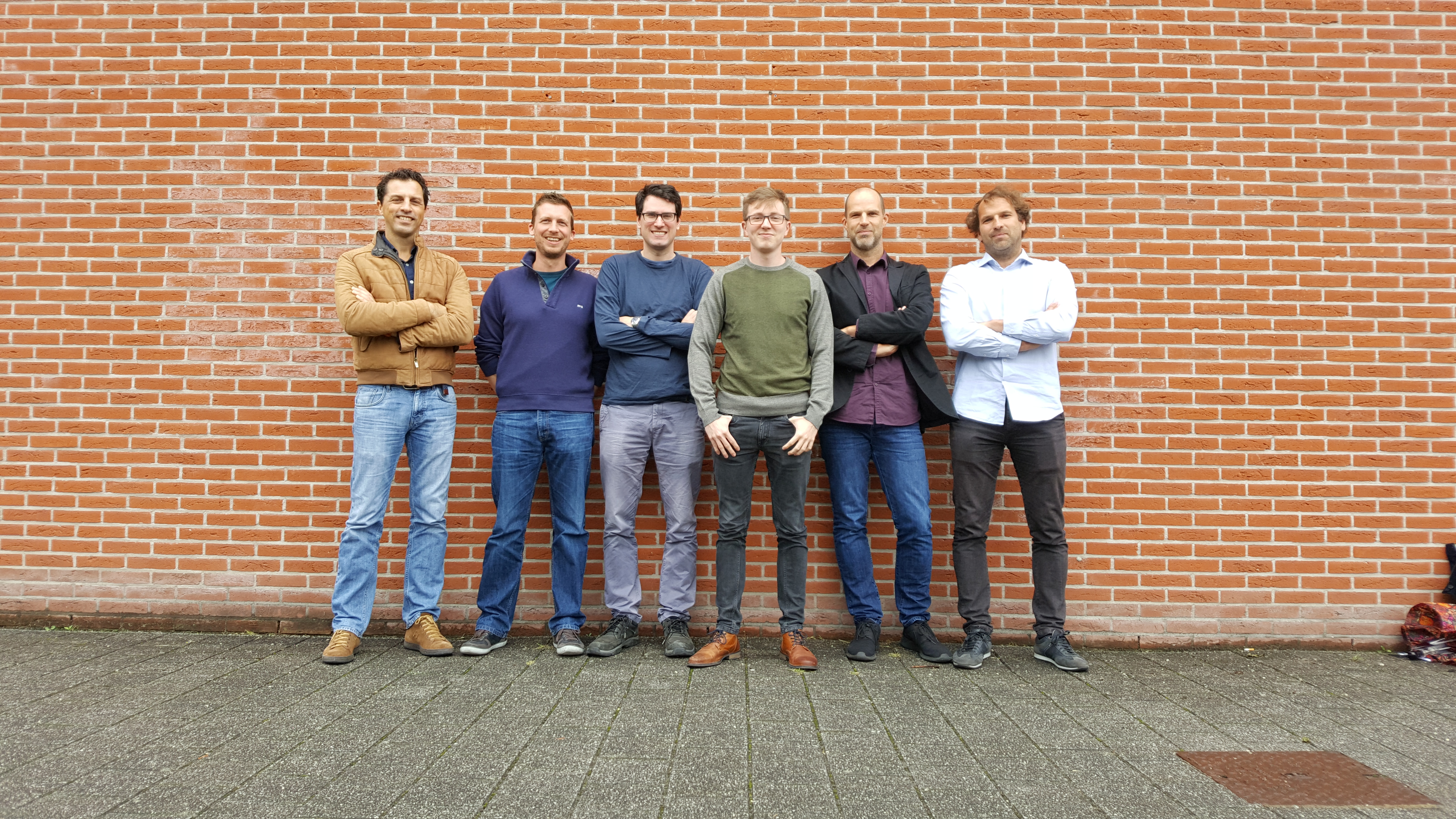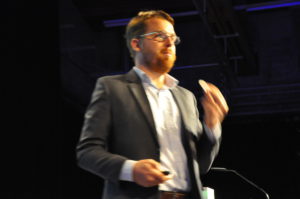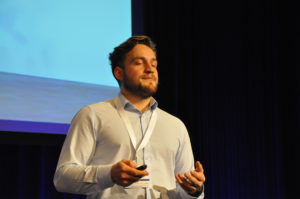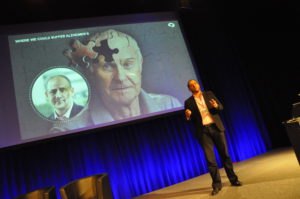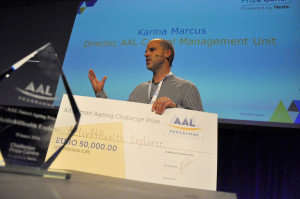II Smart Ageing Challenge Prize to be launched
Shortly before launching the 2nd edition of this successful prize, we interviewed the last winner to understand what was the impact of this competition
Last October, the Belgian company Activ84Health received the very first AAL Smart Ageing Challenge Prize award and a cheque for €50,000 for their Explorer platform (Note: which later was rebranded to “Memoride”, so this is how we will call it from now on) at a glamorous ceremony held at the AAL Forum 2016 in St. Gallen, Switzerland. The idea that conquered the judges was born in the nursing home that co-founder Jan Smolders runs in Belgium and was developed into a smart system that allows housebound individuals to cycle the world. Jan observed that the inhabitants of his nursing home were looking at a wall while doing their exercises, and… that was the start of the journey. Teaming up with his brother Roel, a health technology expert at the Flemish Institute of Technological Research at the time, and IT-experts Wannes and Jesse from the University of Louvain, the team went on to develop the technology that offers older people, who can no longer get out and about, a window on the world.
A year after the ceremony, we e-met with CEO Roel and asked him to describe how the prize became their own window on the world and the opportunities and challenges that came along their journey.
«First of all, the prize of 50.000€ certainly was a big benefit for our company, as most start-ups struggle financially. We do have already over 40 paying customers, but it never hurts to get some more budget. But the international spotlight that was offered to us when we won the Prize was even more important. All of a sudden, we weren’t simply this ambitious start-up with a great idea, but we could affirm that according to the European Commission’s AAL
rogram, we had the most innovative technology for Active and Healthy Ageing. This certainly opened doors. Moreover, winning the award caused some media attention in Belgium, and we were able to attract a new investor thanks to a newspaper article (following our press release). And, finally, the award also boosted our confidence. We had already won a couple of innovation awards in Belgium, but now we started to believe that the rest of Europe, and perhaps even the world, saw the added value of our Memoride Technology».
«The money that came with the prize» Roel says, «was mostly spent on developing the translation platform, so Memoride is now available in Dutch, English, German, French and Swedish, and it takes virtually no time (apart from the translation of about 220 lines of text) to add a new language». As for their future plans, Roel notes that «Memoride is now at a point where it is really ready for global implementation, so we are going to scale internationally. We currently have about 35 paying customers in Belgium and 5 in the Netherlands. These are typically nursing homes, hospitals and rehabilitation centers. We now have business partners in The Netherlands, Sweden and Austria, and we have ongoing discussions with companies in Luxemburg, Switzerland and some others who are interested to distribute our technology in their countries. Others are more than welcome to contact me, as we are ready to expand to international scale. I’d really love to get in contact with businesses in Portugal, Spain, France or Italy that could become our distributors. Obviously, we also have some new and exciting updates in the software which we will be launching soon, and at the same time we are looking at other markets, including travel and rehabilitation, to see what the possible applications could be».
Using Google Streetview connected to a stationary bike, cloud-based software and touchscreen controls, the Memoride was designed to allow older people, unable to get about as they once could, to explore familiar places from their past. As well as stimulating memories, this activity also prompts social interaction in the home, while at the same time providing a valuable exercise routine. Each user has an individual profile, which allows the platform to take into account personal physical and cognitive abilities. Roel shares with us some unique emotional moments from the users’ experience.
« During demo’s, we often get very emotional responses, people in tears when they manage to visit places filled with memories. That is the unique aspect of Memoride, we can go virtually anywhere (as long as Google has pictures available), so people can really enjoy this unique and personalized experience. And at that point the attention shifts from the physical activity to the reminiscence and cognitive aspect. The users will actively go looking for more memories, more locations that hold a special place in their mind and in their heart.
Perhaps the most important aspect, which we initially overlooked, was the storytelling. Anyone that works with older people will tell you about the stories, the memories that they have. Allowing them to go back to those specific locations gives them the “fuel” they need to share these stories. I believe this is the USP of our technology and offers the greatest impact on their lives. And Memoride is developed such that it takes into account their physical and cognitive capacities, so there are virtually no boundaries. Ι had a demonstration where a lady took me to the street where she used to live and started crying at the sight of her house. Later we biked to the café where her late husband went to play billiards, and she had spent many of her Saturday evenings. She talked for more than 30 minutes about her late husband, and couldn’t stop thanking me for the experience. Those are the moments that stick… The most emotional story is probably here https://www.youtube.com/watch?v=NtF2WEXsWbg ».
The 2nd edition of the AAL Challenge Prize is about to be announced and we asked Roel to share some insights about his valuable experience with people who would be interested in applying.
«Don’t start from technology, start from a real need in the ageing population. Technology should serve a purpose, it should have value and offer an experience for the end-user. First, try to understand that need, only then look at what technology you might use and how to implement it.
And test from the first steps of your project onward. When developing technology for ageing individuals, user-centred design is essential as they often have very different expectations and needs than what you and I might think».
Roel couldn’t make it to Coimbra, but Die Johanniter, his Austrian partner, is showcasing Memoride technology in the booth of Cogvis, so drop by there and experience Memoride technology for yourself!
For more information on the upcoming prize, please keep checking: http://aal.challenges.org/

